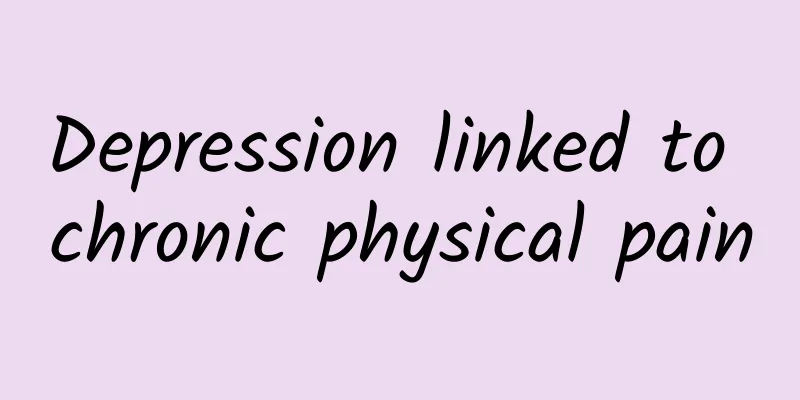Is it better to have your period early or late after childbirth? What the experts say

|
When will a woman get her period after giving birth is a question that most women are concerned about. According to experts, there is no clear answer to this question. It is normal to have your period one month after giving birth, and it is also normal to have your period one year after giving birth. 1. The resumption of menstruation after childbirth is a natural physiological phenomenon. How long after giving birth will menstruation come? This is a common question. The time of recovery may be early or late. Some women may have menstruation as early as one month after the baby is one year old, while others may not recover until the baby is one year old. 2. From a medical point of view, based on the tissue morphology of the endometrium, the ovaries may ovulate as early as 33-42 days after delivery. In addition, the presence of a corpus luteum after ovulation can also be observed 6 weeks after delivery. Therefore, if the mother does not breastfeed, menstruation usually comes within 6 to 8 weeks after delivery. 3. Research data show that 40% of non-breastfeeding mothers resume ovulation 6 weeks after delivery; by 8 to 12 weeks after delivery, only about 35% of mothers have not resumed ovulation and menstruation. About 25% of breastfeeding mothers will resume ovulation and menstruation 12 weeks after delivery, and most breastfeeding mothers usually take until 18 weeks to fully resume ovulation function. However, it is sometimes difficult to clinically determine the exact time of the first menstrual period after delivery, and a small number of women will begin to have intermittent bleeding of small to moderate amounts immediately after delivery. 4. For new mothers who breastfeed their babies, ovulation and menstruation will resume later, and some may not have their period until a year later. For most people, their first menstrual period is heavier than usual, but their second period becomes normal, so no treatment is needed. 5. When menstruation comes, the amount of milk a breastfeeding mother produces generally decreases, and the quality of the protein and fat in the milk also changes slightly, with the protein content being higher and the fat content being lower. This milk sometimes causes indigestion symptoms in babies, but this is a temporary phenomenon and will return to normal after the menstrual period. Therefore, mothers do not need to stop breastfeeding whether during or after menstruation. |
<<: What to do with advanced ovarian cancer? Is treatment still effective?
>>: The most obvious sign before menarche, girls need to understand!
Recommend
How many days of safe period after menstruation
Normal women of childbearing age have a menstrual...
Why do pregnant women always have nosebleeds?
A woman's body will undergo great changes aft...
How many varieties of orchids are there? How to distinguish Hanlan, Jianlan, Molan from their leaves?
Orchids can be seen everywhere on the roadside. T...
What's wrong with the white discharge with blood?
The condition of bloody leucorrhea is caused by d...
Waist pain accompanied by lower abdominal pain
Gynecological diseases are always with women, and...
Benefits of taking a salt bath for women
In recent years, a shower therapy - salt bath - h...
What are the remedies for catching a cold during abortion?
Women must take good care of their bodies after a...
Medication dosage: Elderly people are not equivalent to adults
When taking medicine for the elderly, in addition...
My belly is jumping when I am 8 months pregnant
I have been pregnant for 8 and a half months. Rec...
Why am I not pregnant when my period is regular?
Some girls cannot get pregnant. This situation is...
What should I do if I peed myself with laughter?
Go to the hospital for examination and evaluation...
Why does my iPhone have no signal? How can I restore my iPhone contacts after changing the SIM card?
The soul of a mobile phone is to receive signals ...
Do you always smell this odor? Be careful! It may be a sign of cancer
Have you ever had this experience: you always fee...
How much swelling is normal during pregnancy? How to relieve physiological edema during pregnancy?
During pregnancy, there will be different degrees...
What should I do if my child always tilts his head and squints his eyes? It may be caused by strabismus
Many parents find that their baby has strabismus....









